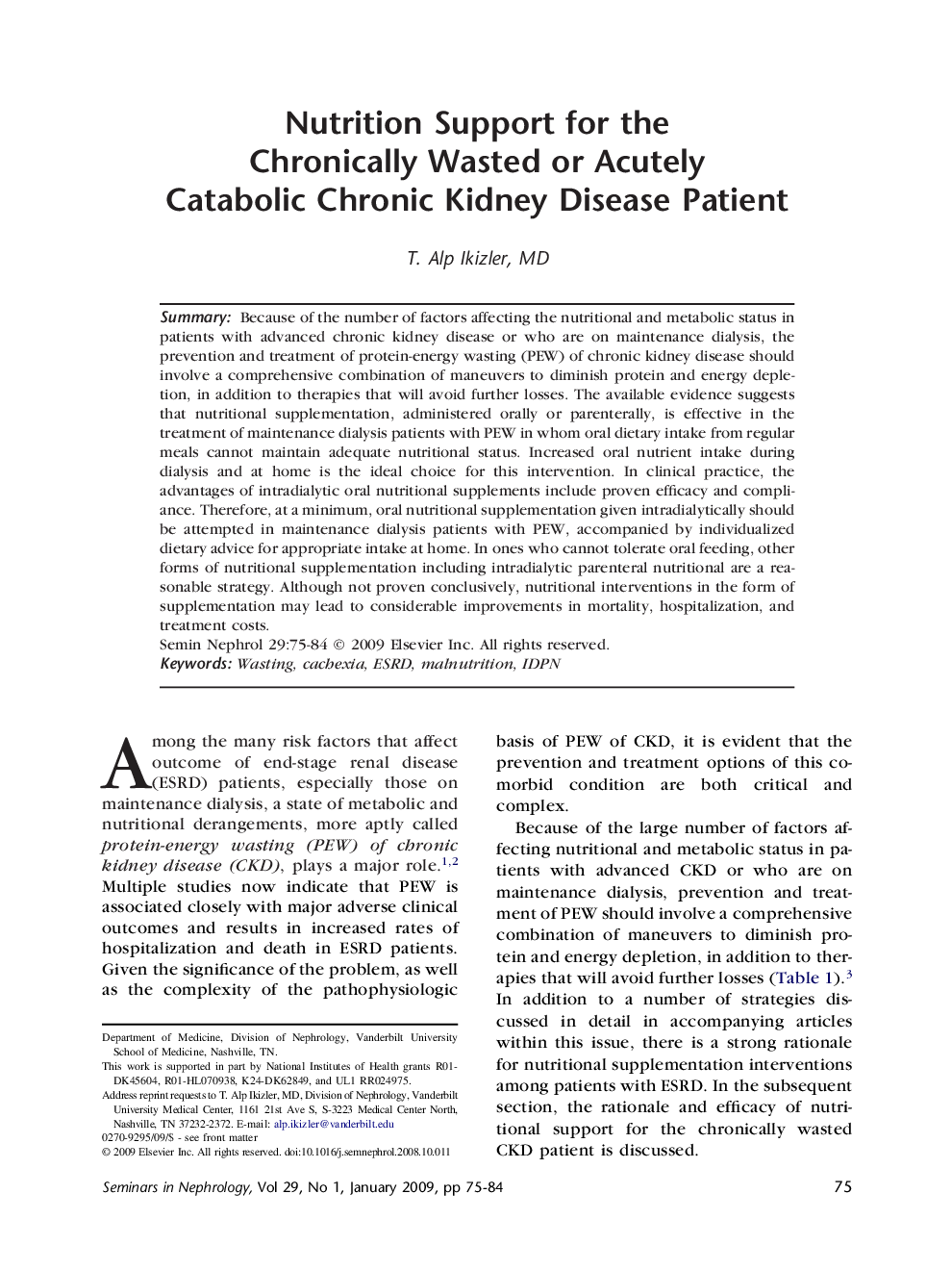| Article ID | Journal | Published Year | Pages | File Type |
|---|---|---|---|---|
| 3897317 | Seminars in Nephrology | 2009 | 10 Pages |
Abstract
Because of the number of factors affecting the nutritional and metabolic status in patients with advanced chronic kidney disease or who are on maintenance dialysis, the prevention and treatment of protein-energy wasting (PEW) of chronic kidney disease should involve a comprehensive combination of maneuvers to diminish protein and energy depletion, in addition to therapies that will avoid further losses. The available evidence suggests that nutritional supplementation, administered orally or parenterally, is effective in the treatment of maintenance dialysis patients with PEW in whom oral dietary intake from regular meals cannot maintain adequate nutritional status. Increased oral nutrient intake during dialysis and at home is the ideal choice for this intervention. In clinical practice, the advantages of intradialytic oral nutritional supplements include proven efficacy and compliance. Therefore, at a minimum, oral nutritional supplementation given intradialytically should be attempted in maintenance dialysis patients with PEW, accompanied by individualized dietary advice for appropriate intake at home. In ones who cannot tolerate oral feeding, other forms of nutritional supplementation including intradialytic parenteral nutritional are a reasonable strategy. Although not proven conclusively, nutritional interventions in the form of supplementation may lead to considerable improvements in mortality, hospitalization, and treatment costs.
Related Topics
Health Sciences
Medicine and Dentistry
Nephrology
Authors
T. Alp MD,
